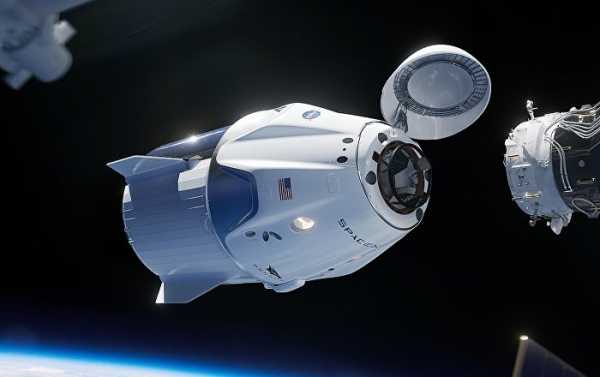
SpaceX and Boeing are in a race to develop the next manned capsule to take US astronauts to the International Space Station. At the moment, NASA and other Western space agencies depend on Russian Soyuz rockets to take crews to the station.
A SpaceX test of parachute systems for its new Crew Dragon manned capsule ended in failure Tuesday, with a helicopter dropping the test article from an unknown height, CNBC has reported , citing a company statement.
The company says it does not consider the mishap a failure of the parachute system itself.
SpaceX has faced problems with capsule parachutes before, with chute testing in Delmar Dry Lake, Nevada in April 2019 aborted after a Crew Dragon’s four parachutes “proactively failed” to demonstrate a capability to maintain stability in the event of the failure of one of the chutes . The failure was said to have caused the test sled to hit the ground faster than expected, damaging it. In December, the company said it had fixed the problem after carrying out ten successful parachute tests in a row.
In a separate development, the company told reporters that it sent a dozen employees home after a healthcare provider and at least one worker tested positive for COVID-19 at the company’s California headquarters.
Last week, NASA announced plans to send two astronauts to the ISS aboard a Crew Dragon mounted atop a Falcon 9 rocket by May, with the launch expected to take place from the Kennedy Space Center in Florida.
It’s unclear whether Tuesday’s parachute test failure will mean a delay in the mission.
Earlier, a source in the Russian space industry revealed that SpaceX rival Boeing plans to send its new Starliner manned spacecraft to the ISS in late August. The company made an attempt to send an unmanned Starliner to the space station in December, but docking with the ISS was canceled after the spacecraft failed to execute an orbital insertion burn on schedule.

This artist’s concept shows Boeing’s CST-100 Starliner spacecraft, currently under development for NASA’s Commercial Crew Program, docking to the International Space Station
NASA and partner space agencies have depended on Russia’s tried-and-tested Soyuz rockets to take astronauts to the ISS since 2011, when the US space agency decommissioned the Space Shuttle program after two crashes and a close call related to the Shuttle’s heat shields.
Sourse: sputniknews.com






